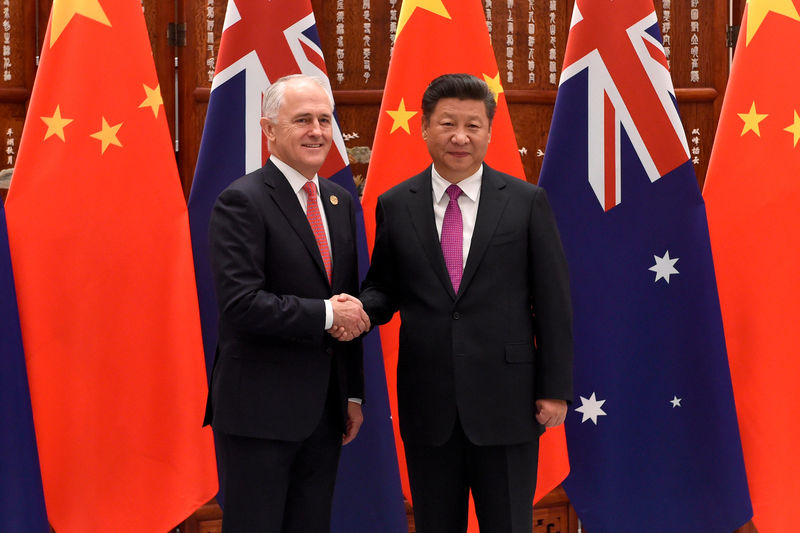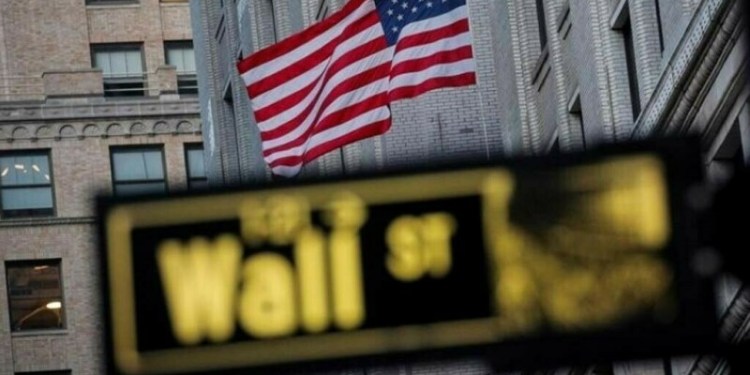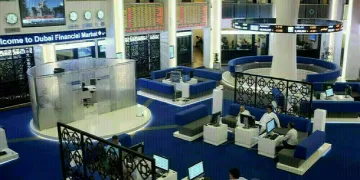 © Reuters. FILE PHOTO: Chinese President Xi Jinping shakes hands with Australia’s Prime Minister Malcolm Turnbull ahead of G20 Summit in Hangzhou, Zhejiang province, China
© Reuters. FILE PHOTO: Chinese President Xi Jinping shakes hands with Australia’s Prime Minister Malcolm Turnbull ahead of G20 Summit in Hangzhou, Zhejiang province, ChinaBy Byron Kaye
SYDNEY (Reuters) – Australian businesses which trade with China criticized their government on Friday as the looming cancellation of an event designed to encourage cross-border trade heralded a “low point” in diplomatic relations between the countries.
Relations between Australia and its A$170 billion ($132 billion) a year partner have been tested just two years into a Free Trade Agreement after Australian concerns about Chinese influence led to legislation banning foreign political donations.
As business leaders warned anti-China sentiment was hurting trade with the country’s top trade partner, small exporters and service providers said the prospect of the Australia Week trade fair not going ahead was a sign the tough rhetoric was translating into lost opportunities.
“Australia should look after its national security concerns but the way we present it is not the most diplomatic way,” said Helen Sawczak, chief executive officer of the Australia China Business Council.
“Every relationship has its ups and downs and we’re in a low point at the moment, there’s no doubt.”
The Australian Financial Review reported this week that China denied visas to Australian government officials to attend Australia Week, a biennial event. Sources with knowledge of the event told Reuters it was unlikely to go ahead.
Australian Prime Minister Malcolm Turnbull has acknowledged relations are strained, without confirming the visas being denied. He has said he expects the trading partners of half a century to resolve their differences.
But Australian businesses said they were concerned the government’s attempts to calm local concern about China was closing doors.
“It’s extremely disappointing,” said Chris Gregory, managing director of Sydney-based Emu Tracks, which sells emu oil-based health products to China via the internet and is awaiting for regulatory approval to sell the product in mainland stores.
Gregory said he went to Australia Week in 2016 and the event provided “a wealth of experience for potential new suppliers to find potential distributors in China”.
Cancelling the show this year “could well impact us in terms of trying to find our way in dealing with finding new distributors,” he added.
Lisa Hee, an aged care specialist who spoke at Australia Week 2016, said the event offered her many meetings with Chinese businesses interested to learn about the Australian aged care system.
“It would be very interesting to find out why these relationships are strained and whether or not it is directly related to the publicity that’s going out that doesn’t seem to be backing China,” she said by telephone from the aged care facility where she works about 80 kms (50 miles) north of Sydney.
Richard , chairman of the Australia China Entrepreneurs Club, a trade group for high net worth businesses, said Australia’s anti-foreign influence policy was never directed specifically at China, but that it had been misinterpreted by some media and public figures in both countries.
“All these could impact the decisions and choices of Chinese students, visitors and investors,” Yuan said in an email.
“The Australian economy could feel the pain in not too distant future.”
Still, some industries reported no effects of diplomatic strain, with winemakers experiencing a boom in sales to the mainland, up nearly two-thirds in the past year.
“A fair word is ‘ferocious’ in terms of the appetite for Australian wines,” said Mike Brown, owner and winemaker of Gemtree Wines.
Brown just returned from a major wine show in China and plans to attend several more this year.
“I’ve never seen consumer and trade interest like it.”
Source: Investing.com




























